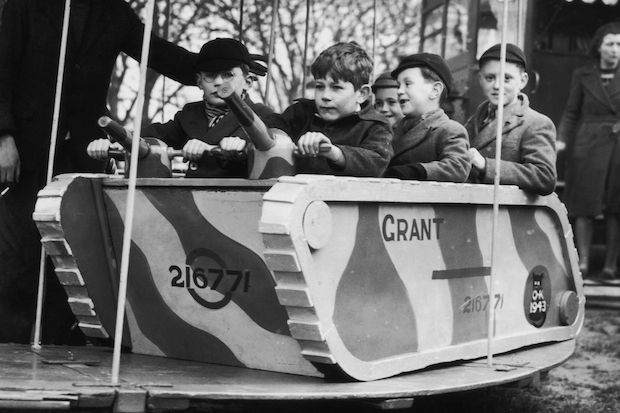The rise of the ‘misery memoir’ describing abusive childhoods, followed by the I-was-a-teenage-druggie-alkie-gangbanger-tick-as-appropriate memoir, pushed into the shadows an older tradition, the memoir of childhood pleasure, of charm and humour. Some of the greats — Gwen Raverat’s Period Piece, Diana Holman-Hunt’s My Grandmothers and I — continue to be enjoyed; others every bit as good — Joan Wyndham’s Love Lessons trilogy — must be snapped up secondhand.
Marjorie Ann Watt’s Slideshow never quite reaches these heights, but is nevertheless a welcome addition to this genre. Watts herself is a painter and illustrator, and here she uses words to depict the lost world of the prewar bohemian Hampstead upper-middle-classes. Her father, Arthur Watts, was a Punch cartoonist; her formidable grandmother the founder of PEN.
Thus the book is filled with throwaway references to ‘the Blisses’— the composer Arthur and family — or E.M. Delafield, author of The Diary of a Provincial Lady. Tagore gives a talk at her school, going ‘on and on until I was almost asleep’. Later, at art college at St Martin’s (also known as ‘this dump’), ‘Lucian Somebody’ waltzes, while later still so does ‘Norbert’ (Brainin, founder of the Amadeus Quartet), ‘horn-rim specs gleaming’. By this time it feels natural that Watts is taught by Henry Moore and Edward ‘Call me Ted’ Ardizzone with — who else? — Quentin Crisp making a flying appearance as a life-drawing model.
Yet these famous people are wallpaper, the decorative backdrop to her life, which is not nearly as much beer and skittles as an overview would suggest. After a prosperous, protected childhood, brought up by nannies (and nanny humour abounds: ‘Look at those fingernails. Are we in mourning for the cat?’), the death of her father before she is ten changes things abruptly.








Comments
Join the debate for just £1 a month
Be part of the conversation with other Spectator readers by getting your first three months for £3.
UNLOCK ACCESS Just £1 a monthAlready a subscriber? Log in